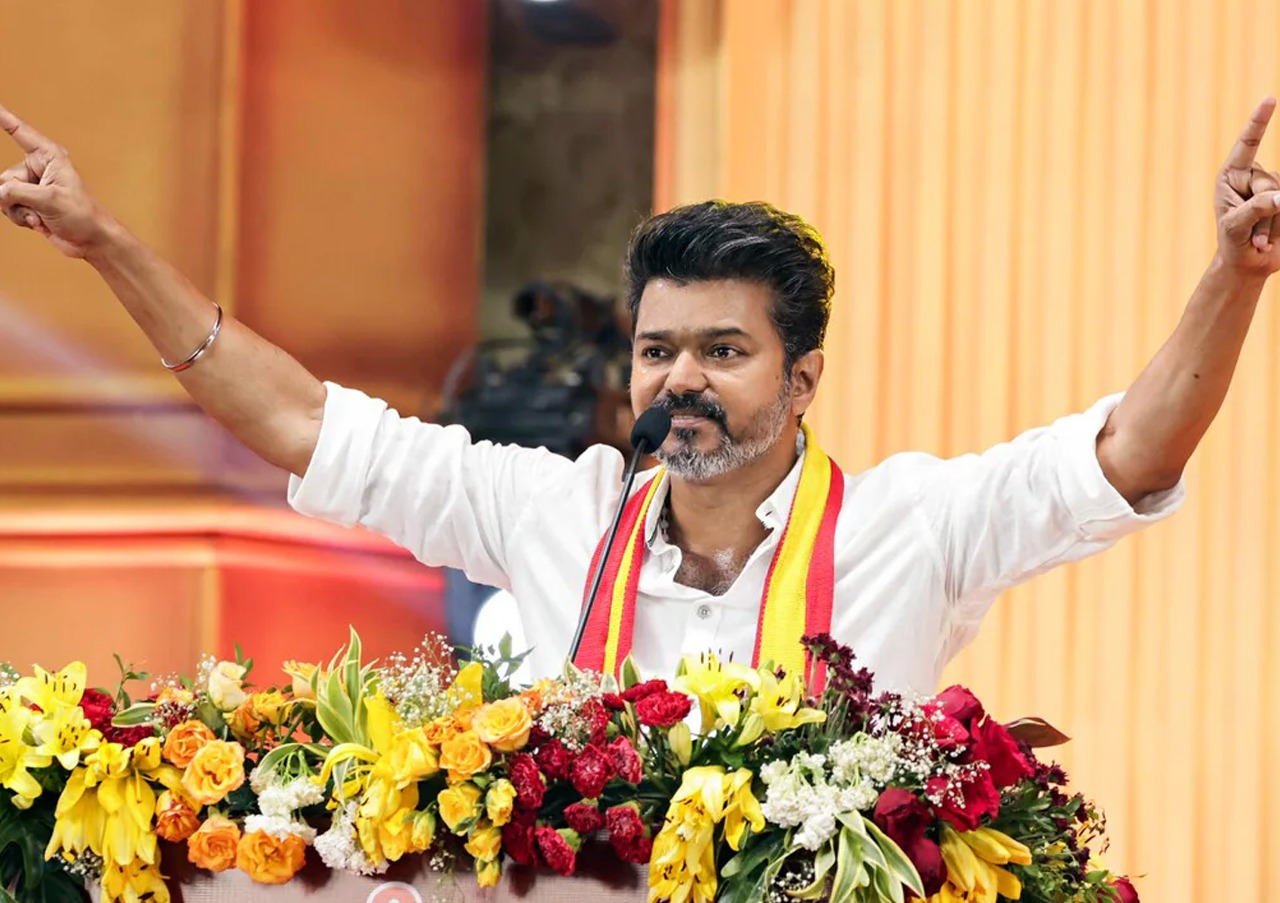
The custodial death of a 29-year-old temple security guard, Ajith Kumar, of Sivaganga district, has officially moved to the Central Bureau of Investigation as actor-turned-politician Vijay led a huge protest in Chennai demanding justice for police brutality victims.
It was on Saturday that CBI recorded a First Information Report under Section 103 of the Bharatiya Nyaya Sanhita on the punishment of murder. The investigating officer has been constituted as Deputy Superintendent of police Mohit Kumar, and the Madurai Bench of the Madras High Court ordered the agency to provide a final report by August 20.
Ajith Kumar, who worked as a security guard at the Badrakali Amman Temple in Madapuram village, was picked up by police on June 27 in connection with a gold theft complaint. According to the FIR, he was allegedly subjected to brutal torture by a special police team at various locations outside the Thirupuvanam police station over two days.
The victim, according to reports, was beaten up for several hours at a remote place close to the temple before he was admitted to several hospitals and his death was confirmed on June 29. This incident caused a huge outcry among the people as a video was circulated of a man who was believed to be Ajith Kumar being beaten up with sticks repeatedly.
Following the controversy, the Tamil Nadu government took swift action. Six police personnel from the special team were suspended, with five subsequently arrested. The Sivaganga Superintendent of Police has been placed under compulsory wait, while the Deputy Superintendent of Police has been suspended.
Today's protest marks a significant moment for Vijay, the founder-chief of Tamilaga Vettri Kazhagam (TVK), as it represents his first public agitation since launching his political party. The actor-politician has positioned himself as the Chief Ministerial face of TVK ahead of the 2026 state elections.
Speaking at the protest rally, Vijay launched a scathing attack on the ruling DMK government, stating that the "empty, publicity-model DMK sarkar has now got transformed into a sorry model sarkar." He questioned whether Chief Minister MK Stalin had apologised to the families of all 24 victims who allegedly died in police custody during the DMK regime since 2021.
The protest, which received permission from the Greater Chennai Police with 16 conditions, saw participation from approximately 6,000 people. Around 2,000 police personnel were deployed for security, with families of other custodial death victims joining the demonstration.
Before the protest, Vijay had met with families of custodial death victims at the TVK headquarters on Saturday. The three-hour closed-door meeting saw attendance from 18 out of 24 families whose relatives allegedly died in police custody. During the meeting, Vijay inquired about the circumstances of each death, compensation provided, and the status of legal proceedings.
The TVK chief provided Rs 25,000 in financial assistance to each family and had earlier given Rs 2 lakh to Ajith Kumar's family during a condolence visit on July 2.
CBI Investigation and Court Directives:
The case was transferred to the CBI after mounting pressure, and a judicial inquiry report was submitted by Fourth Additional District Judge S. John Sundarlal Suresh on July 8. The sessions court judge's report confirmed illegal custody and torture, leading to the high court's directive for central agency involvement.
Chief Minister MK Stalin, who apologised to Ajith Kumar's family, ordered the CBI probe, stating there should be "no doubts over the investigation." The original jewellery theft complaint filed by complainant J.P. Nikitha has also been handed over to the central agency.
The protest and Vijay's aggressive stance against the DMK government signal his party's clear positioning ahead of the 2026 elections. TVK has categorically ruled out any alliance with the BJP, either directly or indirectly, while also maintaining distance from the ruling DMK.
Political observers view this as Vijay's attempt to establish himself as a credible opposition voice, particularly on issues of police accountability and human rights. The actor's transition from entertainment to politics appears to be gaining momentum with this high-profile case.
The custodial death case has become a litmus test for the DMK government's commitment to justice and police reforms, with the CBI investigation now under intense public scrutiny.